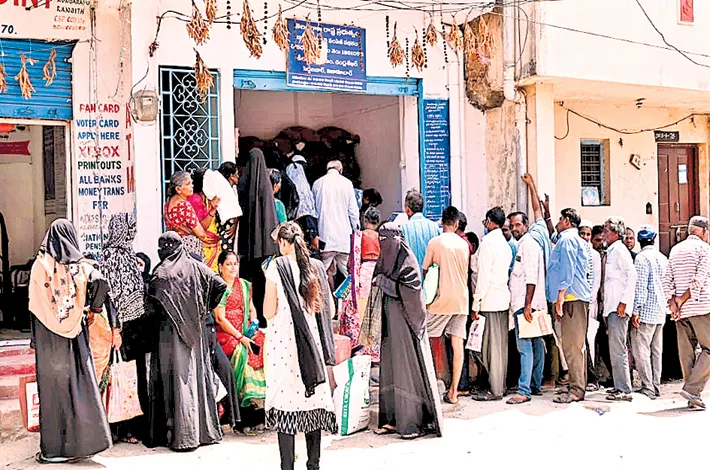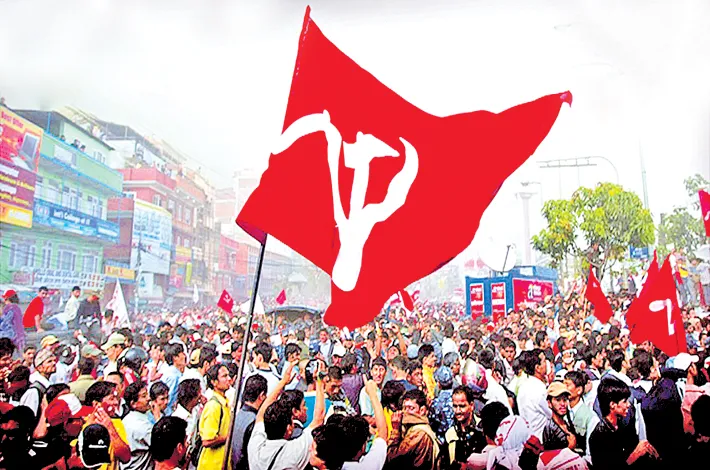Ration dealers overwhelmed by biometric delays, server failures
09-06-2025 12:00:00 AM

Ration dealers across Telangana are buckling under pressure as the Centre’s directive to distribute three months' rice stock in one go has created logistical chaos at Fair Price Shops statewide.
Under the scheme, each eligible individual receives 6 kg of fine rice monthly, while every cardholder is entitled to 5 kg of wheat. Antyodaya Anna Yojana (AAY) cardholders also get 1 kg of sugar. With June, July, and August quotas being distributed simultaneously, the workload has surged, exposing cracks in the Public Distribution System (PDS) infrastructure.
Since June 1, the Telangana government has been distributing combined food quotas through its PDS network. The state has over 91.44 lakh active ration cards, including 5.66 lakh AAY, 85.73 lakh Priority Household (PHH), and 5,383 Annapurna (AAP) cards.
In Hyderabad district alone, 653 Fair Price Shops are handling the load for 6.47 lakh Food Security Card holders, covering over 24 lakh individuals. The city has received more than 45,000 metric tonnes of rice and 9,700 metric tonnes of wheat to meet demand.
However, the requirement of separate biometric authentication and ePoS receipts for each month’s quota is significantly increasing processing time, resulting in long queues and system slowdowns.
“Earlier, we could manage a month’s quota in a week. Now, handling three months' worth at once is overwhelming,” says Mohan Rao, a ration dealer in Nizamabad. “Each person undergoes multiple biometric scans and weight checks. Sometimes it takes half an hour to serve one cardholder. Now multiply that by hundreds.”
Compounding the problem is the unreliable performance of Bluetooth-enabled ePoS machines and poor internet connectivity, particularly in districts like Kamareddy and Nizamabad, where three-month allocations approach 18,000 metric tonnes of rice.
Dealers report receiving little to no training on the new machines. “We’re expected to manage all this without preparation, while people shout at us in the heat. This is no longer a service—it’s punishment,” Rao adds.
Queues now stretch from morning until evening, with villagers placing bags in line to reserve their turn and waiting in shaded areas to avoid the sun. To address the chaos, officials are considering reinstating the token-based system used during the COVID-19 lockdown, which limited daily service to 30 cards per shop.
Ration dealers are calling for urgent relief: phased distribution, improved server support, technical training, and better internet infrastructure. Without intervention, the very backbone of Telangana’s essential food supply could collapse under pressure.








